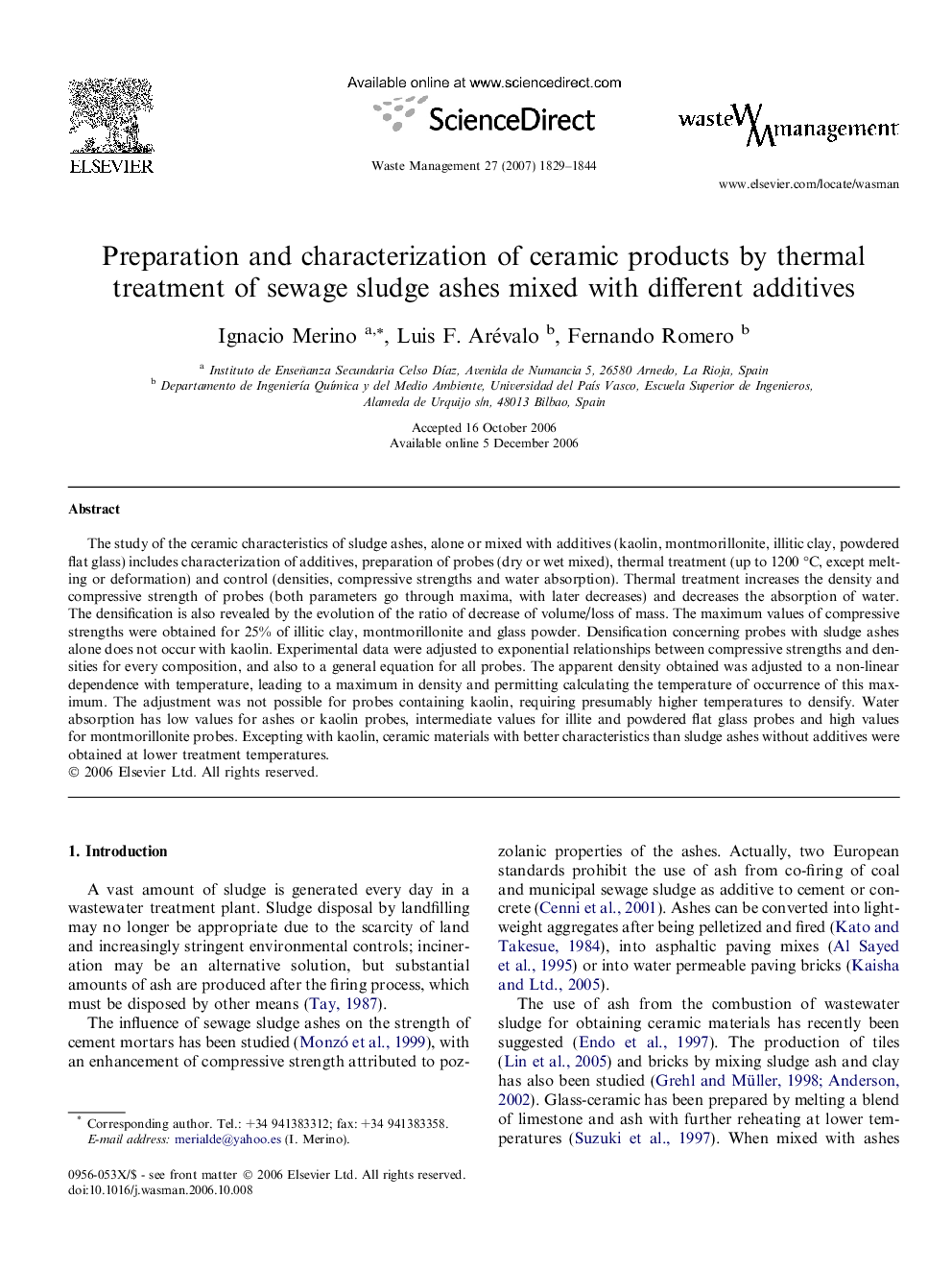| Article ID | Journal | Published Year | Pages | File Type |
|---|---|---|---|---|
| 4473756 | Waste Management | 2007 | 16 Pages |
The study of the ceramic characteristics of sludge ashes, alone or mixed with additives (kaolin, montmorillonite, illitic clay, powdered flat glass) includes characterization of additives, preparation of probes (dry or wet mixed), thermal treatment (up to 1200 °C, except melting or deformation) and control (densities, compressive strengths and water absorption). Thermal treatment increases the density and compressive strength of probes (both parameters go through maxima, with later decreases) and decreases the absorption of water. The densification is also revealed by the evolution of the ratio of decrease of volume/loss of mass. The maximum values of compressive strengths were obtained for 25% of illitic clay, montmorillonite and glass powder. Densification concerning probes with sludge ashes alone does not occur with kaolin. Experimental data were adjusted to exponential relationships between compressive strengths and densities for every composition, and also to a general equation for all probes. The apparent density obtained was adjusted to a non-linear dependence with temperature, leading to a maximum in density and permitting calculating the temperature of occurrence of this maximum. The adjustment was not possible for probes containing kaolin, requiring presumably higher temperatures to densify. Water absorption has low values for ashes or kaolin probes, intermediate values for illite and powdered flat glass probes and high values for montmorillonite probes. Excepting with kaolin, ceramic materials with better characteristics than sludge ashes without additives were obtained at lower treatment temperatures.
